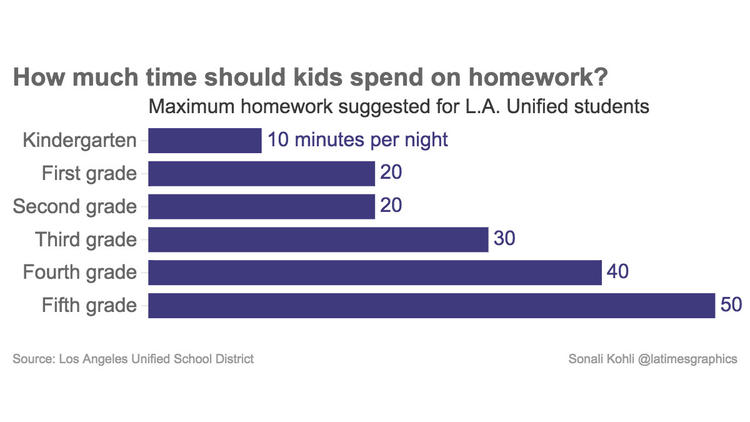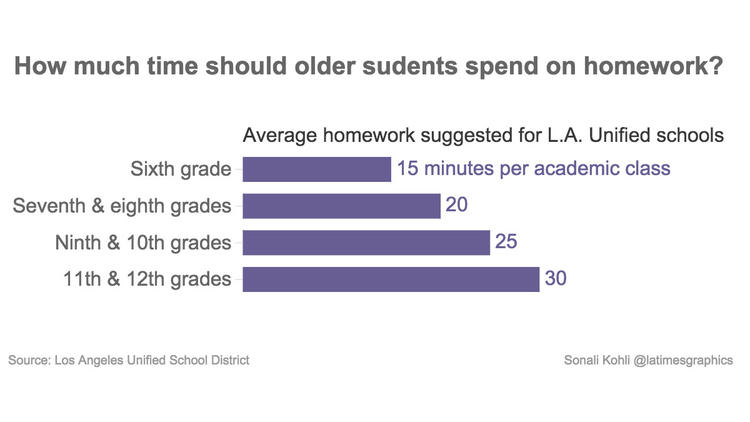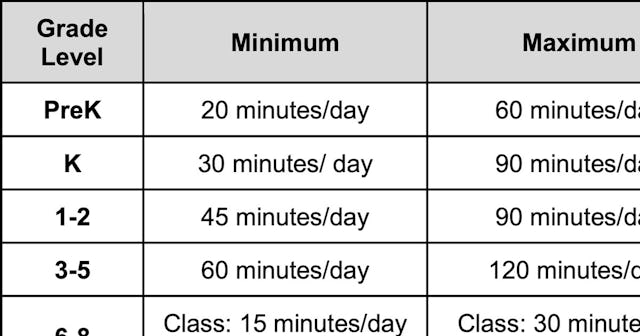- December 12 Success through change
- December 12 Decidedly stressed
- December 12 Frozen in time
- December 12 From page to stage
- December 4 BISA launches first-ever supply drive


Three Penny Press

Students spend three times longer on homework than average, survey reveals
Sonya Kulkarni and Pallavi Gorantla | Jan 9, 2022

Graphic by Sonya Kulkarni
The National Education Association and the National Parent Teacher Association have suggested that a healthy number of hours that students should be spending can be determined by the “10-minute rule.” This means that each grade level should have a maximum homework time incrementing by 10 minutes depending on their grade level (for instance, ninth-graders would have 90 minutes of homework, 10th-graders should have 100 minutes, and so on).
As ‘finals week’ rapidly approaches, students not only devote effort to attaining their desired exam scores but make a last attempt to keep or change the grade they have for semester one by making up homework assignments.
High schoolers reported doing an average of 2.7 hours of homework per weeknight, according to a study by the Washington Post from 2018 to 2020 of over 50,000 individuals. A survey of approximately 200 Bellaire High School students revealed that some students spend over three times this number.
The demographics of this survey included 34 freshmen, 43 sophomores, 54 juniors and 54 seniors on average.
When asked how many hours students spent on homework in a day on average, answers ranged from zero to more than nine with an average of about four hours. In contrast, polled students said that about one hour of homework would constitute a healthy number of hours.
Junior Claire Zhang said she feels academically pressured in her AP schedule, but not necessarily by the classes.
“The class environment in AP classes can feel pressuring because everyone is always working hard and it makes it difficult to keep up sometimes.” Zhang said.
A total of 93 students reported that the minimum grade they would be satisfied with receiving in a class would be an A. This was followed by 81 students, who responded that a B would be the minimum acceptable grade. 19 students responded with a C and four responded with a D.
“I am happy with the classes I take, but sometimes it can be very stressful to try to keep up,” freshman Allyson Nguyen said. “I feel academically pressured to keep an A in my classes.”
Up to 152 students said that grades are extremely important to them, while 32 said they generally are more apathetic about their academic performance.
Last year, nine valedictorians graduated from Bellaire. They each achieved a grade point average of 5.0. HISD has never seen this amount of valedictorians in one school, and as of now there are 14 valedictorians.
“I feel that it does degrade the title of valedictorian because as long as a student knows how to plan their schedule accordingly and make good grades in the classes, then anyone can be valedictorian,” Zhang said.
Bellaire offers classes like physical education and health in the summer. These summer classes allow students to skip the 4.0 class and not put it on their transcript. Some electives also have a 5.0 grade point average like debate.
Close to 200 students were polled about Bellaire having multiple valedictorians. They primarily answered that they were in favor of Bellaire having multiple valedictorians, which has recently attracted significant acclaim .
Senior Katherine Chen is one of the 14 valedictorians graduating this year and said that she views the class of 2022 as having an extraordinary amount of extremely hardworking individuals.
“I think it was expected since freshman year since most of us knew about the others and were just focused on doing our personal best,” Chen said.
Chen said that each valedictorian achieved the honor on their own and deserves it.
“I’m honestly very happy for the other valedictorians and happy that Bellaire is such a good school,” Chen said. “I don’t feel any less special with 13 other valedictorians.”
Nguyen said that having multiple valedictorians shows just how competitive the school is.
“It’s impressive, yet scary to think about competing against my classmates,” Nguyen said.
Offering 30 AP classes and boasting a significant number of merit-based scholars Bellaire can be considered a competitive school.
“I feel academically challenged but not pressured,” Chen said. “Every class I take helps push me beyond my comfort zone but is not too much to handle.”
Students have the opportunity to have off-periods if they’ve met all their credits and are able to maintain a high level of academic performance. But for freshmen like Nguyen, off periods are considered a privilege. Nguyen said she usually has an hour to five hours worth of work everyday.
“Depending on the day, there can be a lot of work, especially with extra curriculars,” Nguyen said. “Although, I am a freshman, so I feel like it’s not as bad in comparison to higher grades.”
According to the survey of Bellaire students, when asked to evaluate their agreement with the statement “students who get better grades tend to be smarter overall than students who get worse grades,” responders largely disagreed.
Zhang said that for students on the cusp of applying to college, it can sometimes be hard to ignore the mental pressure to attain good grades.
“As a junior, it’s really easy to get extremely anxious about your GPA,” Zhang said. “It’s also a very common but toxic practice to determine your self-worth through your grades but I think that we just need to remember that our mental health should also come first. Sometimes, it’s just not the right day for everyone and one test doesn’t determine our smartness.”
Your donation will support the student journalists of Bellaire High School. Your contribution will allow us to purchase equipment and cover our annual website hosting costs.

HUMANS OF BELLAIRE – Benjamin Kotlyar

HUMANS OF BELLAIRE – Rohith Mehra

HUMANS OF BELLAIRE – Wesley George

Profiting from passion

HUMANS OF BELLAIRE – Justin Cothran

Success through change

Decidedly stressed

Frozen in time
![how many hours of homework in 8th grade Freshman Reginae Dugas vocalizes her opinion on a slam poem shown in the meeting. "Poetry Club gives you more of an understanding [of poems] rather than just writing something on a piece of paper," Dugas said.](https://threepennypress.org/wp-content/uploads/2024/12/nx5rkdSSfX8MqMFutbdGgVzC4vwYLhARKEfe5eFS-600x486.png)
From page to stage

BISA launches first-ever supply drive
Comments (10).
Cancel reply
Your email address will not be published. Required fields are marked *
Anonymous • Jul 16, 2024 at 3:27 pm
didnt realy help
Anonymous • Nov 21, 2023 at 10:32 am
It’s not really helping me understand how much.
josh • May 9, 2023 at 9:58 am
Kassie • May 6, 2022 at 12:29 pm
Im using this for an English report. This is great because on of my sources needed to be from another student. Homework drives me insane. Im glad this is very updated too!!
Kaylee Swaim • Jan 25, 2023 at 9:21 pm
I am also using this for an English report. I have to do an argumentative essay about banning homework in schools and this helps sooo much!
Izzy McAvaney • Mar 15, 2023 at 6:43 pm
I am ALSO using this for an English report on cutting down school days, homework drives me insane!!
luke • Oct 24, 2024 at 9:29 am
I am also using this for an English report. I am making an argumentative essay and this site has helped me complete the essay.
tamryn • Nov 10, 2024 at 5:48 pm
I am also using this for English report, its an argumentative essay, and this is great for mla citations
E. Elliott • Apr 25, 2022 at 6:42 pm
I’m from Louisiana and am actually using this for an English Essay thanks for the information it was very informative.
Nabila Wilson • Jan 10, 2022 at 6:56 pm
Interesting with the polls! I didn’t realize about 14 valedictorians, that’s crazy.
How Much Homework Is Enough? Depends Who You Ask

- Share article
Editor’s note: This is an adapted excerpt from You, Your Child, and School: Navigate Your Way to the Best Education ( Viking)—the latest book by author and speaker Sir Ken Robinson (co-authored with Lou Aronica), published in March. For years, Robinson has been known for his radical work on rekindling creativity and passion in schools, including three bestselling books (also with Aronica) on the topic. His TED Talk “Do Schools Kill Creativity?” holds the record for the most-viewed TED talk of all time, with more than 50 million views. While Robinson’s latest book is geared toward parents, it also offers educators a window into the kinds of education concerns parents have for their children, including on the quality and quantity of homework.
The amount of homework young people are given varies a lot from school to school and from grade to grade. In some schools and grades, children have no homework at all. In others, they may have 18 hours or more of homework every week. In the United States, the accepted guideline, which is supported by both the National Education Association and the National Parent Teacher Association, is the 10-minute rule: Children should have no more than 10 minutes of homework each day for each grade reached. In 1st grade, children should have 10 minutes of daily homework; in 2nd grade, 20 minutes; and so on to the 12th grade, when on average they should have 120 minutes of homework each day, which is about 10 hours a week. It doesn’t always work out that way.
In 2013, the University of Phoenix College of Education commissioned a survey of how much homework teachers typically give their students. From kindergarten to 5th grade, it was just under three hours per week; from 6th to 8th grade, it was 3.2 hours; and from 9th to 12th grade, it was 3.5 hours.
There are two points to note. First, these are the amounts given by individual teachers. To estimate the total time children are expected to spend on homework, you need to multiply these hours by the number of teachers they work with. High school students who work with five teachers in different curriculum areas may find themselves with 17.5 hours or more of homework a week, which is the equivalent of a part-time job. The other factor is that these are teachers’ estimates of the time that homework should take. The time that individual children spend on it will be more or less than that, according to their abilities and interests. One child may casually dash off a piece of homework in half the time that another will spend laboring through in a cold sweat.
Do students have more homework these days than previous generations? Given all the variables, it’s difficult to say. Some studies suggest they do. In 2007, a study from the National Center for Education Statistics found that, on average, high school students spent around seven hours a week on homework. A similar study in 1994 put the average at less than five hours a week. Mind you, I [Robinson] was in high school in England in the 1960s and spent a lot more time than that—though maybe that was to do with my own ability. One way of judging this is to look at how much homework your own children are given and compare it to what you had at the same age.
Many parents find it difficult to help their children with subjects they’ve not studied themselves for a long time, if at all.
There’s also much debate about the value of homework. Supporters argue that it benefits children, teachers, and parents in several ways:
- Children learn to deepen their understanding of specific content, to cover content at their own pace, to become more independent learners, to develop problem-solving and time-management skills, and to relate what they learn in school to outside activities.
- Teachers can see how well their students understand the lessons; evaluate students’ individual progress, strengths, and weaknesses; and cover more content in class.
- Parents can engage practically in their children’s education, see firsthand what their children are being taught in school, and understand more clearly how they’re getting on—what they find easy and what they struggle with in school.
Want to know more about Sir Ken Robinson? Check out our Q&A with him.
Q&A With Sir Ken Robinson
Ashley Norris is assistant dean at the University of Phoenix College of Education. Commenting on her university’s survey, she says, “Homework helps build confidence, responsibility, and problem-solving skills that can set students up for success in high school, college, and in the workplace.”
That may be so, but many parents find it difficult to help their children with subjects they’ve not studied themselves for a long time, if at all. Families have busy lives, and it can be hard for parents to find time to help with homework alongside everything else they have to cope with. Norris is convinced it’s worth the effort, especially, she says, because in many schools, the nature of homework is changing. One influence is the growing popularity of the so-called flipped classroom.
In the stereotypical classroom, the teacher spends time in class presenting material to the students. Their homework consists of assignments based on that material. In the flipped classroom, the teacher provides the students with presentational materials—videos, slides, lecture notes—which the students review at home and then bring questions and ideas to school where they work on them collaboratively with the teacher and other students. As Norris notes, in this approach, homework extends the boundaries of the classroom and reframes how time in school can be used more productively, allowing students to “collaborate on learning, learn from each other, maybe critique [each other’s work], and share those experiences.”
Even so, many parents and educators are increasingly concerned that homework, in whatever form it takes, is a bridge too far in the pressured lives of children and their families. It takes away from essential time for their children to relax and unwind after school, to play, to be young, and to be together as a family. On top of that, the benefits of homework are often asserted, but they’re not consistent, and they’re certainly not guaranteed.
Sign Up for EdWeek Update
Edweek top school jobs.

Sign Up & Sign In


- Kindergarten
- Grade 1 Tutoring
- Grade 2 Tutoring
- Grade 3 Tutoring
- Grade 4 Tutoring
- Grade 5 Tutoring
- Grade 6 Tutoring
- Grade 7 Tutoring
- Grade 8 Tutoring
- Grade 9 Tutoring
- Grade 10 Tutoring
- Grade 11 Tutoring
- Grade 12 Tutoring/
- Grade 12 Tutoring
How Much Time Should Be Spent on Homework Based on Grade?
- 18 July 2020
- Posted by: ICAN Education
- Category: Tutoring
A common question that parents always ask is, “How much time should my child dedicate to homework every day?” It’s not an easy question to answer. As we all know, every student learns differently from each other. While some kids do, substantially, better in school, by completing one hour of homework every day. There might be some others, who require two hours of homework, but only see a slight improvement in their grades.
To get to the bottom of this, we went to the experts for the answers! So here’s a break down of how much time your child should spend on homework according to their grade.
What is The Recommended Homework Time in Elementary School?
So before we give you a solid figure. We took a look at the results of a May 2012 study from the Los Angeles Unified School District . (Figure 1 below)

If your child is starting out in kindergarten and they receive some basic worksheets to complete for homework, the standard time they should spend on completing homework is 10 minutes per night.
Keep in mind, kindergarten childen might have shorter attention spans, than older kids, and might need a few intervals in between to complete their homework. So let them do it for 5 minutes, then take a 5 minute break, then continue for another 5 minutes to complete.
Usually, Grade 1 – 3 students receive one to three homework assignments per week. They suggest that your child spend at least 20 – 30 minutes per night on homework.
Grade 4 – 5 students who receive two to four assignments per week, should focus between 40 – 50 minutes on completing each assignment.
What is The Recommended Homework Time in Middle and High school?
As your child enters middle and high school, naturally, their home work time will increase. As subjects get harder and more information needs to be retained for exams, more time is needed to practice. Here are the home work time estimations for older students from the Los Angeles Unified School District . (Figure 2 below)

Students in middle school are from Grades 6 – 8. As class subjects require more attention and practice, middle school students get assigned three to five sets of assignments per week. We recommend that your child spend between 45 – 75 minutes per night.
Once your child is in highschool, Grade 9 – 12 students usually receive four to five sets of homework per week. According to Figure 2, high school students should focus about 25-30 minutes on each subject.
For example, if your child is in Grade 10 and has a Math and English assignment to do for homework, they should spend at least 30 minutes on English and 30 minutes on Math. If they take one or two short breaks, it works out to be 75 – 150 minutes per set to complete both assignments.
Get Homework Help For Your Kids At ICan Education!

Does your child need help completing their homework? ICan Education can help as we offer flexible Homework Help with tutors in Brampton, Mississauga, Milton, and Burlington!
ICAN Education tutoring centre has several locations in the GTA West, Mississauga, Brampton, Milton, and Burlington. To locate the closest ICAN Education centre near you, click here .
Do you have any tips to share with other parents and students about completing homework? Let us know by posting your comments below and let’s move the conversation to our Twitter Page @icanedu. Don’t forget to ‘Like’ ICAN Education’s Facebook and say ‘hi!’!
Our 62nd annual international Conference | february 27 - march 1, 2025 | orlando, florida

How Much Time Should Be Spent on Homework?

At the elementary level homework should be brief, at your child’s ability level and involve frequent, voluntary and high interest activities. Young students require high levels of feedback and/or supervision to help them complete assignments correctly. Accurate homework completion is influenced by your child’s ability, the difficulty of the task, and the amount of feedback your child receives. When assigning homework, your child’s teachers may struggle to create a balance at this age between ability, task difficulty and feedback. Unfortunately, there are no simple guiding principles.
We can assure you, however, that your input and feedback on a nightly basis is an essential component in helping your child benefit from the homework experience.
What is the recommended time in elementary school?
In first through third grade, students should receive one to three assignments per week, taking them no more than fifteen to twenty minutes. In fourth through sixth grade, students should receive two to four assignments per week, lasting between fifteen and forty-five minutes. At this age, the primarily goal of homework is to help your child develop the independent work and learning skills that will become critical in the higher grades. In the upper grades, the more time spent on homework the greater the achievement gains.
What is the recommended time in middle and high school?
For students in middle and high school grades there are greater overall benefits from time engaged in practicing and thinking about school work. These benefits do not appear to depend as much upon immediate supervision or feedback as they do for elementary students. In seventh through ninth grade we recommend students receive three to five sets of assignments per week, lasting between forty-five and seventy-five minutes per set. In high school students will receive four to five sets of homework per week, taking them between seventy-five and 150 minutes per set to complete.
As children progress through school, homework and the amount of time engaged in homework increases in importance. Due to the significance of homework at the older age levels, it is not surprising that there is more homework assigned. Furthermore, homework is always assigned in college preparatory classes and assigned at least three quarters of the time in special education and vocational training classes. Thus at any age, homework may indicate our academic expectations of children.
Regardless of the amount of homework assigned, many students unsuccessful or struggling in school spend less rather than more time engaged in homework. It is not surprising that students spending less time completing homework may eventually not achieve as consistently as those who complete their homework.
Does this mean that time devoted to homework is the key component necessary for achievement?
We are not completely certain. Some American educators have concluded that if students in America spent as much time doing homework as students in Asian countries they might perform academically as well. It is tempting to assume such a cause and effect relationship.
However, this relationship appears to be an overly simple conclusion. We know that homework is important as one of several influential factors in school success. However, other variables, including student ability, achievement, motivation and teaching quality influence the time students spend with homework tasks. Many students and their parents have told us they experience less difficulty being motivated and completing homework in classes in which they enjoyed the subject, the instruction, the assignments and the teachers.
The benefits from homework are the greatest for students completing the most homework and doing so correctly. Thus, students who devote time to homework are probably on a path to improved achievement. This path also includes higher quality instruction, greater achievement motivation and better skill levels.
Authors: Dr. Sam Goldstein and Dr. Sydney Zentall

There is no official affiliate of the Learning Disabilities Association of America in this state.
If you would like to learn more about how to get involved, please reach out to us here .
LDA of Oklahoma’s mission is to create opportunities for success for all individuals affected by learning disabilities through support, education and advocacy.
Contact LDA of Oklahoma at [email protected].
LDA of South Carolina’s mission is to create opportunities for success for all individuals affected by learning disabilities through support, education and advocacy.
Find us on Facebook: https://www.facebook.com/LDAofSC

Washington D.C. is covered by the LDA of Maryland Affiliate
LDA of Maryland’s mission is to create opportunities for success for all individuals affected by learning disabilities through support, education and advocacy.
Find us on Facebook: https://www.facebook.com/ldamd/
Visit our website: https://ldamd.org/

LDA of Wisconsin’s mission is to create opportunities for success for all individuals affected by learning disabilities through support, education and advocacy.
Visit our website: https://ldaofwisconsin.org/

LDA of West Virginia’s mission is to create opportunities for success for all individuals affected by learning disabilities through support, education and advocacy.
Email: [email protected]

LDA of Virginia’s mission is to create opportunities for success for all individuals affected by learning disabilities through support, education and advocacy.
Visit our website: https://ldava.org

LDA of Utah’s mission is to create opportunities for success for all individuals affected by learning disabilities through support, education and advocacy.
Find us on Facebook: https://www.facebook.com/ldau.org/
Visit our website: https://www.ldau.org/
Phone: 801.553.9156

LDA of Texas’ mission is to create opportunities for success for all individuals affected by learning disabilities through support, education and advocacy.
Follow us on Facebook: https://www.facebook.com/LDATexas/
Visit our Website: https://ldatx.org

LDA of Pennsylvania’s mission is to create opportunities for success for all individuals affected by learning disabilities through support, education and advocacy.
Find us on Facebook: https://www.facebook.com/ldapa
Visit our website: https://ldaofpa.org
Phone: 412.212.7087

LDA of Ohio’s mission is to create opportunities for success for all individuals affected by learning disabilities through support, education and advocacy.
Visit our website: https://lda-oh.org

LDA of North Carolina’s mission is to create opportunities for success for all individuals affected by learning disabilities through support, education and advocacy.
Find us on Facebook: https://www.facebook.com/LDAofNorthCarolina
Visit our Website: https://ldanc.org

LDA of New York’s mission is to create opportunities for success for all individuals affected by learning disabilities through support, education and advocacy.
Visit our website: https://ldanys.org

LDA of New Jersey’s mission is to create opportunities for success for all individuals affected by learning disabilities through support, education and advocacy.
Find us on Facebook: https://www.facebook.com/LearningDisabilitiesAssociationofNJ/
Visit our website: https://ldanj.org

LDA of New Hampshire’s mission is to create opportunities for success for all individuals affected by learning disabilities through support, education and advocacy.
Visit our website: https://nhlda.org

LDA of Nebraska’s mission is to create opportunities for success for all individuals affected by learning disabilities through support, education and advocacy.
Find us on Facebook: https://www.facebook.com/LearningDisabilityNE/

LDA of America does not currently have an active state affiliate in Missouri.
Make a difference in your state by volunteering to start a state affiliate to help individuals with learning disabilities in your state.
Contact LDA of America at [email protected] to inquire about starting a state affiliate.
LDA of Minnesota’s mission is to create opportunities for success for all individuals affected by learning disabilities through support, education and advocacy.
Find us on Facebook: https://www.facebook.com/LDAMinnesota/
Follow us on X (formerly Twitter): https://x.com/ldaminnesota
Visit our Website: https://www.ldaminnesota.org/
Phone: 952.582.6000

LDA of Illinois’ mission is to create opportunities for success for all individuals affected by learning disabilities through support, education and advocacy.
Find us on Facebook: https://www.facebook.com/profile.php?id=100063726155725
Visit our website: https://ldaillinois.org
Phone: 708.430.7532

The Learning Disabilities Association of Iowa is dedicated to identifying causes and promoting prevention of learning disabilities and to enhancing the quality of life for all individuals with learning disabilities and their families by:
- Encouraging effective identification and intervention,
- Fostering research, and
- Protecting the rights of individuals with learning disabilities under the law.
Find us on Facebook: https://www.facebook.com/LDA.Iowa
Follow us on X (formerly Twitter): https://x.com/ldaofiowa
Visit our website: https://ldaiowa.org
Phone: 515.209.2290

LDA of Michigan’s mission is to create opportunities for success for all individuals affected by learning disabilities through support, education and advocacy.
Find us on Facebook: https://www.facebook.com/LDAmichigan
Follow us on X (formerly Twitter): https://x.com/LDAmichigan
Visit our Website: https://ldaofmichigan.org
Phone: 616.284.1650

The mission of LDA of Massachusetts is to create opportunities for success for all individuals affected by learning disabilities through support, education and advocacy.
Affiliate Contact: Kristen Lech Contact Email: [email protected]

The Learning Disabilities Association of Louisiana (LDA-LA) is one of the state affiliates of the Learning Disabilities Association of America, as a nonprofit volunteer organization of parents, professionals, and adults with learning disabilities. Our mission is to create opportunities for success for all individuals affected by learning disabilities through support, education, and advocacy.
Find us on Facebook: https://www.facebook.com/LDAofLouisiana/

LDA of Kentucky’s mission is to create opportunities for success for all individuals affected by learning disabilities through support, education and advocacy.
Find us on Facebook: https://www.facebook.com/profile.php?id=100067524906403
Visit our Website: https://www.ldaofky.org/

LDA of Indiana’s mission is to create opportunities for success for all individuals affected by learning disabilities through support, education and advocacy.
Find us on Facebook: https://www.facebook.com/LearningDisabilitiesAssociationofIndiana/

LDA of Georgia’s mission is to create opportunities for success for all individuals affected by learning disabilities through support, education and advocacy.
Find us on Facebook: https://www.facebook.com/LearningDisabilitiesAssociationofGeorgia/
Visit our website: https://ldaga.org

LDA of Florida’s mission is to create opportunities for success for all individuals affected by learning disabilities through support, education and advocacy.
Find us on Facebook: https://www.facebook.com/LDAFlorida/
Visit our website: https://lda-florida.org

LDA of Connecticut’s mission is to create opportunities for success for all individuals affected by learning disabilities through support, education and advocacy.
Find us on Facebook: https://www.facebook.com/LDAofCT
Visit our Website: https://sites.google.com/view/ldaofconnecticut/

LDA of Delaware’s mission is to create opportunities for success for all individuals affected by learning disabilities through support, education and advocacy.
Affiliate Contact: Fern Goldstein
Find us on Facebook: https://www.facebook.com/ldadelaware/
Visit our Website: https://ldadelaware.org/

LDA of California’s mission is to create opportunities for success for all individuals affected by learning disabilities through support, education and advocacy.
Visit our website: https://ldacalifornia.org
Affiliate Contact: EunMi Cho

LDA of Arkansas’s mission is to create opportunities for success for all individuals affected by learning disabilities through support, education and advocacy.
Find us on Facebook: https://www.facebook.com/ldarkansas/
Visit our website: https://lda-arkansas.org

LDA of Alabama’s mission is to create opportunities for success for all individuals affected by learning disabilities through support, education and advocacy.
Find Us on Facebook: https://www.facebook.com/LDAAlabama/
Visit Our Website: https://ldaalabama.org/


What’s the Right Amount of Homework?
Decades of research show that homework has some benefits, especially for students in middle and high school—but there are risks to assigning too much.
Your content has been saved!
Many teachers and parents believe that homework helps students build study skills and review concepts learned in class. Others see homework as disruptive and unnecessary, leading to burnout and turning kids off to school. Decades of research show that the issue is more nuanced and complex than most people think: Homework is beneficial, but only to a degree. Students in high school gain the most, while younger kids benefit much less.
The National PTA and the National Education Association support the “ 10-minute homework guideline ”—a nightly 10 minutes of homework per grade level. But many teachers and parents are quick to point out that what matters is the quality of the homework assigned and how well it meets students’ needs, not the amount of time spent on it.
The guideline doesn’t account for students who may need to spend more—or less—time on assignments. In class, teachers can make adjustments to support struggling students, but at home, an assignment that takes one student 30 minutes to complete may take another twice as much time—often for reasons beyond their control. And homework can widen the achievement gap, putting students from low-income households and students with learning disabilities at a disadvantage.
However, the 10-minute guideline is useful in setting a limit: When kids spend too much time on homework, there are real consequences to consider.

Small Benefits for Elementary Students
As young children begin school, the focus should be on cultivating a love of learning, and assigning too much homework can undermine that goal. And young students often don’t have the study skills to benefit fully from homework, so it may be a poor use of time (Cooper, 1989 ; Cooper et al., 2006 ; Marzano & Pickering, 2007 ). A more effective activity may be nightly reading, especially if parents are involved. The benefits of reading are clear: If students aren’t proficient readers by the end of third grade, they’re less likely to succeed academically and graduate from high school (Fiester, 2013 ).
For second-grade teacher Jacqueline Fiorentino, the minor benefits of homework did not outweigh the potential drawback of turning young children against school at an early age, so she experimented with dropping mandatory homework. “Something surprising happened: They started doing more work at home,” Fiorentino writes . “This inspiring group of 8-year-olds used their newfound free time to explore subjects and topics of interest to them.” She encouraged her students to read at home and offered optional homework to extend classroom lessons and help them review material.
Moderate Benefits for Middle School Students
As students mature and develop the study skills necessary to delve deeply into a topic—and to retain what they learn—they also benefit more from homework. Nightly assignments can help prepare them for scholarly work, and research shows that homework can have moderate benefits for middle school students (Cooper et al., 2006 ). Recent research also shows that online math homework, which can be designed to adapt to students’ levels of understanding, can significantly boost test scores (Roschelle et al., 2016 ).
There are risks to assigning too much, however: A 2015 study found that when middle school students were assigned more than 90 to 100 minutes of daily homework, their math and science test scores began to decline (Fernández-Alonso, Suárez-Álvarez, & Muñiz, 2015 ). Crossing that upper limit can drain student motivation and focus. The researchers recommend that “homework should present a certain level of challenge or difficulty, without being so challenging that it discourages effort.” Teachers should avoid low-effort, repetitive assignments, and assign homework “with the aim of instilling work habits and promoting autonomous, self-directed learning.”
In other words, it’s the quality of homework that matters, not the quantity. Brian Sztabnik, a veteran middle and high school English teacher, suggests that teachers take a step back and ask themselves these five questions :
- How long will it take to complete?
- Have all learners been considered?
- Will an assignment encourage future success?
- Will an assignment place material in a context the classroom cannot?
- Does an assignment offer support when a teacher is not there?
More Benefits for High School Students, but Risks as Well
By the time they reach high school, students should be well on their way to becoming independent learners, so homework does provide a boost to learning at this age, as long as it isn’t overwhelming (Cooper et al., 2006 ; Marzano & Pickering, 2007 ). When students spend too much time on homework—more than two hours each night—it takes up valuable time to rest and spend time with family and friends. A 2013 study found that high school students can experience serious mental and physical health problems, from higher stress levels to sleep deprivation, when assigned too much homework (Galloway, Conner, & Pope, 2013 ).
Homework in high school should always relate to the lesson and be doable without any assistance, and feedback should be clear and explicit.
Teachers should also keep in mind that not all students have equal opportunities to finish their homework at home, so incomplete homework may not be a true reflection of their learning—it may be more a result of issues they face outside of school. They may be hindered by issues such as lack of a quiet space at home, resources such as a computer or broadband connectivity, or parental support (OECD, 2014 ). In such cases, giving low homework scores may be unfair.
Since the quantities of time discussed here are totals, teachers in middle and high school should be aware of how much homework other teachers are assigning. It may seem reasonable to assign 30 minutes of daily homework, but across six subjects, that’s three hours—far above a reasonable amount even for a high school senior. Psychologist Maurice Elias sees this as a common mistake: Individual teachers create homework policies that in aggregate can overwhelm students. He suggests that teachers work together to develop a school-wide homework policy and make it a key topic of back-to-school night and the first parent-teacher conferences of the school year.
Parents Play a Key Role
Homework can be a powerful tool to help parents become more involved in their child’s learning (Walker et al., 2004 ). It can provide insights into a child’s strengths and interests, and can also encourage conversations about a child’s life at school. If a parent has positive attitudes toward homework, their children are more likely to share those same values, promoting academic success.
But it’s also possible for parents to be overbearing, putting too much emphasis on test scores or grades, which can be disruptive for children (Madjar, Shklar, & Moshe, 2015 ). Parents should avoid being overly intrusive or controlling—students report feeling less motivated to learn when they don’t have enough space and autonomy to do their homework (Orkin, May, & Wolf, 2017 ; Patall, Cooper, & Robinson, 2008 ; Silinskas & Kikas, 2017 ). So while homework can encourage parents to be more involved with their kids, it’s important to not make it a source of conflict.

A new, streamlined version of Intervention Central is coming in December 2023. The new site will eliminate user login accounts. If you have a login account, be sure to download and save any documents of importance from that account, as they will be erased when the website is revised.
- Academic Interventions
- Behavior Interventions
- CBM/Downloads
How To: Choose the Right Amount of Daily Homework
Despite the differences in the recommendations from these sources, the table shows broad agreement about how much homework to assign at each grade. At grades 1-3, homework should be limited to an hour or less per day, while in grades 4-6, homework should not exceed 90 minutes. The upper limit in grades 7-8 is 2 hours and the limit in high school should be 2.5 hours.
Teachers can use the homework time recommendations included here as a point of comparison: in particular, schools should note that assigning homework that exceeds the upper limit of these time estimates is not likely to result in additional learning gains--and may even be counter-productive (Cooper, Robinson, & Patall, 2006).
It should also be remembered that the amount of homework assigned each day is not in itself a sign of high academic standards. Homework becomes a powerful tool to promote learning only when students grasp the purpose of each homework assignment, clearly understand homework directions, perceive that homework tasks are instructionally relevant, and receive timely performance feedback (e.g., teacher comments; grades) on submitted homework (Jenson, Sheridan, Olympia, & Andrews, 1994).
Attachments
- Download This Blog Entry in PDF Format: How To: Choose the Right Amount of Daily Homework
- Barkley, R. A. (2008). 80+ classroom accommodations for children or teens with ADHD. The ADHD Report, 16 (4), 7-10.
- Cooper, H., Robinson, J. C., & Patall, E A. (2006). Does homework improve academic achievement? A synthesis of research, 1987-2003. Review of Educational Research, 76 (1), 1-62.
- Jenson, W. R., Sheridan, S. M., Olympia, D., & Andrews, D. (1994). Homework and students with learning disabilities and behavior disorders: A practical, parent-based approach. Journal of Learning Disabilities, 27 , 538-548.

Homeschooling and the Optimal Amount of Homework?
May 9, 2023 | Homeschool Tips and Support , How to Start Homeschooling
The concept of “homework” might seem a little redundant if you are a home educator. After all, if you are doing school at home, then by definition all school work is “homework.”
In a homeschool setting, “homework” is independent work your student is expected to complete on his or her own time outside of your regular instructional periods. Calculating how much homework should be given to children can be daunting. On the one hand, no parent wants to crush their child beneath an unreasonable load of homework, sucking the joy out of education. On the other hand, many parents fear their student is not doing enough homework.
Suppose your son is given fifteen Algebra equations to solve for homework. He sits down at the kitchen table, opens his notebook, and less than ten minutes later says, “Done,” and saunters off to play video games. These sorts of situations may leave you wondering, “Did I assign him enough to do? Should I increase his workload?”

Or, suppose your daughter has been laboring away in her room translating Latin sentences for the last two hours. It’s past 10:00 PM and she still has her nose to the grindstone with no sign of letting up. Is this normal? All students pull a late night now and then, but how often is “now and then”?
While determining homework load is always going to have some degree of subjectivity based on your child’s study habits, cognitive development, or potential learning disabilities, there is a rule of thumb for what constitutes the optimal amount of homework ( optimal denoting enough homework to deepen students’ understanding of the material but not enough to lead to mental fatigue).
The Ten Minute Rule
The rule of thumb for daily homework is ten minutes per grade level, starting at 1st grade. This number is all-inclusive, meaning for all classes, not per class. So, for example, the ideal amount of homework for a 2nd grader is 20 minutes per day, while the optimal amount for a 6th grader is 60 minutes. Using this system, daily homework allotment across grade levels would look like this:
1st Grade: 10 minutes 2nd Grade: 20 minutes 3rd Grade: 30 minutes 4th Grade: 40 minutes 5th Grade: 50 minutes 6th Grade: 60 minutes 7th Grade: 70 minutes 8th Grade: 80 minutes 9th Grade: 90 minutes 10th Grade: 100 minutes 11th Grade: 110 minutes 12th Grade: 120 minutes
This rule of thumb has been affirmed by independent studies ( source ), and supported both by the National Education Association and the National Parent Teachers Association ( source ). It is safe to say there is a broad consensus on the question across academia. However, as homeschoolers, we have to keep in mind a few caveats:
First , these numbers represent how long the teacher (or in your case, parent) expects the homework to take. In order for these numbers to be helpful, you ought to have a realistic expectation of how long an assignment will take a child. This can be difficult to gauge when viewing it through adult eyes. You may assign your child a chapter of Dante’s Inferno and expect it to take 10 minutes because you love the text and you had no trouble reading it, but your child might spend 45 minutes struggling through it. As always, use your own child’s specific situation as your baseline.
Second , these numbers represent the optimal amount of homework, not the recommended amount. What’s the difference? Saying “the optimal amount of homework for a 3rd grader is 30 minutes per day” means that, if you are going to assign homework to a 3rd grader, around 30 minutes is a solid amount. It is not a recommendation that you make sure your 3rd grader gets a half-hour of homework every day. It is not a prescription for a certain amount of homework, but merely a guideline for what amount of homework is ideal when and if you assign it.
Third , remember that these are only averages. You are not overburdening your child if you sometimes go over these numbers; you are not neglecting your child if you dip below them. These numbers represent a rule of thumb—useful for general application, but admitting of occasional exceptions. A senior preparing for a final exam is obviously going to spend more time than usual studying; a child who is a math whiz may spend less time than usual on homework. There are all sorts of variables that need to be allowed for.
The Purpose of Homework
Really, though, before you assign homework, you should stop to ask yourself why you are assigning it. “That’s a silly question,” you might think. “Homework is simply part of school.” But why? What is the benefit of giving children additional work to complete outside of regular edcuational time? There are several reasons when this is necessary:
1. When the subject requires drills or repetitions in order to master. For example, working through twenty geometry problems to master the Pythagoream Theorem, practicing a list of vocabulary words when learning French, or reading and re-reading a scene from Shakespeare to memorize for a play.
2. When additional reading is required to cover material not covered in class. For example, when working through a science chapter with your child, the explanation of a certain concept takes longer than anticipated, leading you to have to end class without finishing the chapter; you ask your child to finish reading the chapter on his own and be ready to discuss it the following day.
3. When the class structure requires regular outside reading. For example, a literature class where the class time is based around lectures delivered on texts the student is expected to read on his or her own time.
4. When preparing for a class project or presentation. For example, a history student working on a poster project for an oral presentation, or researching/writing a term paper.
You may have noticed, each of these examples reflect a scenario where homework is necessary . One reason it is not necessary is “because a class should have homework.” You should not assign homework just because you feel like a class ought to have it. Assign homework with a purpose, to reinforce a specific skill or impart specific information; do not assign it merely for the sake of “having homework.” It is perfectly acceptable for certain classes to not have regular homework if the demands of the course do not require it. If you are using an unschooling model, you may not assign any homework at all.
Assigning homework is always going to be subject to a host of variables, but hopefully this has helped take some of the guesswork out of it.
About the Author
Mr. Phillip Campbell is a history teacher for Homeschool Connections. He is also the author of the popular ” Story of Civilization ” series from TAN Books, as well as many other titles on subjects of Catholic history and culture. Mr. Campbell lives in rural Michigan with his children and has been involved in the Catholic homeschooling world for over twenty years. You can visit Mr. Campbell’s website at www.phillipcampbell.ne t.
Dec 13, 2024
Homeschooling while sick: tips for staying productive and stress-free, nov 18, 2024, a thanksgiving guide for catholic homeschooling moms, nov 15, 2024, using praise to build a growth mindset, nov 04, 2024, carschooling: turning drive time into learning time, oct 28, 2024, tell them about homeschooling, oct 01, 2024, understanding homeschooling styles, sep 23, 2024, how to fix a bad homeschool day, sep 06, 2024, maximizing flexibility: benefits of year-round homeschooling vs. two-semester model, aug 27, 2024, feeling left out of back-to-school fun, aug 09, 2024, transform your catholic homeschool.
Resources to help you in your Catholic homeschool…

Catholic Homeschool Classes Online

Homeschooling Saints Podcast

Good Counsel Careers

The Catholic Homeschool Conference
Subscribe to Our Newsletter
Get updated every month on all the latest Homeschooling Saints podcast episodes and new blog posts
Ready to Get Started?
Homeschooling can seem daunting at first, but take it from us: The joy and freedom you gain from homeschooling far outweighs the challenges.
With flexible online classes, passionate instructors, and a supportive community at your back and cheering you on, there’s no limits to where your homeschooling journey can take your family!
Sign up today!
Pin It on Pinterest
- Newsletters

How Much Time Should Be Spent On Homework?
- Dr. Sam Goldstein , Sydney S. Zentall

At the elementary level we suggest that homework is brief, at your child’s ability level and involve frequent, voluntary and high interest activities. Young students require high levels of feedback and/or supervision to help them complete assignments correctly. Accurate homework completion is influenced by your child’s ability, the difficulty of the task and the amount of feedback your child receives. When assigning homework, your child’s teachers may struggle to create a balance at this age between ability, task difficulty and feedback. Unfortunately, there are no simple guiding principles. We can assure you, however, that your input and feedback on a nightly basis is an essential component in helping your child benefit from the homework experience. In first through third grade, students should receive one to three assignments per week, taking them no more than fifteen to twenty minutes. In fourth through sixth grade, students should receive two to four assignments per week, lasting between fifteen and forty-five minutes. At this age, the primarily goal of homework is to help your child develop the independent work and learning skills that will become critical in the higher grades. In the upper grades, the more time spent on homework the greater the achievement gains.
For students in middle and high school grades there are greater overall benefits from time engaged in practicing and thinking about school work. These benefits do not appear to depend as much upon immediate supervision or feedback as they do for elementary students. In seventh through ninth grade we recommend students receive three to five sets of assignments per week, lasting between forty-five and seventy-five minutes per set. In high school students will receive four to five sets of homework per week, taking them between seventy-five and 150 minutes per set to complete.
As children progress through school, homework and the amount of time engaged in homework increases in importance. Due to the significance of homework at the older age levels, it is not surprising that there is more homework assigned. Furthermore, homework is always assigned in college preparatory classes and assigned at least three quarters of the time in special education and vocational training classes. Thus at any age, homework may indicate our academic expectations of children.
Regardless of the amount of homework assigned, many students unsuccessful or struggling in school, spend less rather than more time engaged in homework. It is not surprising that students spending less time completing homework may eventually not achieve as consistently as those who complete their homework. Does this mean that time devoted to homework is the key component necessary for achievement? We are not completely certain. Some American educators have concluded that if students in America spent as much time doing homework as students in Asian countries they might perform academically as well. It is tempting to assume such a cause and effect relationship. However, this relationship appears to be an overly simple conclusion. We know that homework is important as one of several influential factors in school success. However, other variables, including student ability, achievement, motivation and teaching quality influence the time students spend with homework tasks. Many students and their parents have told us they experience less difficulty being motivated and completing homework in classes in which they enjoyed the subject, the instruction, the assignments and the teachers.
The benefits from homework are the greatest for students completing the most homework and doing so correctly. Thus, students who devote time to homework are probably on a path to improved achievement. This path also includes higher quality instruction, greater achievement motivation and better skill levels.
This column is excerpted and condensed from, Seven Steps to Homework Success: A Family Guide for Solving Common Homework Problems by Sydney S. Zentall, Ph.D. and Sam Goldstein, Ph.D. (1999, Specialty Press, Inc.).
- More Resources

General Articles

Homework Articles

Forensic Updates

Golf Articles
These Are the Hours Your Kid Should Be Homeschooling Per Day Based on Their Grade
:upscale()/2020/04/10/875/n/24155406/tmp_6dwEXx_b1f2d22625458729_Screen_Shot_2020-04-10_at_2.59.18_PM.png)
The pressure to homeschool is at a fever pitch, particularly as more and more states are announcing sweeping school closures until the fall. And with such polarizing guidance, it's easy for parents to look at a typical seven-hour school day and assume that they simply aren't doing enough.
In late March, the Illinois State Board of Education released "remote learning recommendations" in order to provide clarification to districts, schools, teachers, students, and parents as to what virtual education should look like during the "COVID-19 emergency."
And within this 60-page document, perhaps the most helpful section was a small chart outlining the "suggested minimum and maximum times of engagement by each student in remote learning activities." Broken down by grade level, it gives parents achievable benchmarks for how much time should be spent doing remote learning each day:
:upscale()/2020/04/10/875/n/24155406/tmp_8tZnJp_35f04baff932b71c_Screen_Shot_2020-04-10_at_2.56.25_PM.png)
In addition to the time parameters, it also outlined how additional engagement opportunities – versus strict remote learning assignments – are especially vital for preschool and elementary grade levels, where it is not "developmentally appropriate to expect a student to attend to academic tasks for a long period of time." For those kids, the organization offered up a separate table of activities and noted that families are "encouraged" to support learning via these methods instead.
Illinois's Board of Education said it created these recommendations because it "acknowledges that all students, families, and schools are diverse and supports remote learning that meets local needs, and to the greatest extent possible, minimizes the negative impact this unprecedented moment has on our students' educational trajectories."
And although these guidelines might vary state to state, it serves as a helpful baseline for those parents who have been trying to fill full school days when they should actually be homeschooling a lot less.
- Parenting Tips
- Staying Home
Chart Shows The Hours A Child Should Be Homeschooling By Grade

The chart outlines the minimum and maximum number of hours (or minutes) a child should spend homeschooling
While the nation is practicing social distancing to slow the coronavirus pandemic, millions of parents have spent the last several weeks learning how to homeschool as they go . Most of us didn’t exactly sign up for this, and suffice to say, it’s a steep learning curve . As some of us watch our kids toil for hours while trying to complete their homeschooling each day, it’s comforting to know that experts say there is a maximum (and minimum) amount of time kids should be homeschooling each day.
Thanks to a chart created by the Illinois State Board of Education and released as part of their “remote learning recommendations,” we can try to gauge how much time our kids should be logging into Google Classroom and hitting the books from home. It might be a lot less time than you think:

Illinois Board of Education
My kids are in middle school and this chart about adds up for us, but I know friends with younger kids who are definitely spending a lot more time on homeschooling each day than the Board is recommending. This is useful information for us parents to have, considering most of us probably aren’t actual teachers. Pushing a younger kid for too long will only result in frustration for everyone, so it’s good to see that elementary school children shouldn’t be spending six hours every day on their homeschooling work.
Of course, every state has their own board of education and can issue guidelines independently, but this chart can serve as a baseline to help understand whether your kids are doing too much, not enough, or just the right amount of homeschooling work.
In addition to the chart, the Illinois board offered ideas for activities kids could do to enrich not just their academics, but their physical health and family relationships.

Ideas include puzzles , writing stories , dancing , coloring , gardening, and telling jokes to family members . It’s important to remember as we navigate this homeschooling landscape that “in-person” school includes many moments that aren’t just staring at the board, doing worksheets, and taking notes. If your kids want to start up a garden , that can make a pretty amazing little science lesson. If your tweens want to learn some TikTok dances for 30 minutes? Hello, physical education addendum. We can get creative and fill the days with fun and memories along with meeting all the requirements set forth by their wonderful teachers.
This is all new and uncharted, so it’s great when resources like this are available for parents to help guide us through.
This article was originally published on April 15, 2020

IMAGES
VIDEO
COMMENTS
This means that each grade level should have a maximum homework time incrementing by 10 minutes depending on their grade level (for instance, ninth-graders would have 90 minutes of homework, 10th-graders should have 100 minutes, and so on). ... When asked how many hours students spent on homework in a day on average, answers ranged from zero to ...
In others, they may have 18 hours or more of homework every week. In the United States, ... from 6th to 8th grade, it was 3.2 hours; and from 9th to 12th grade, it was 3.5 hours.
Usually, Grade 1 - 3 students receive one to three homework assignments per week. They suggest that your child spend at least 20 - 30 minutes per night on homework. Grade 4 - 5 students who receive two to four assignments per week, should focus between 40 - 50 minutes on completing each assignment.
Time spent on homework should be appropriate to the child's grade level. At the elementary level homework should be brief, at your child's ability level and involve frequent, voluntary and high interest activities. ... motivation and teaching quality influence the time students spend with homework tasks. Many students and their parents have ...
The National PTA and the National Education Association support the "10-minute homework guideline"—a nightly 10 minutes of homework per grade level. But many teachers and parents are quick to point out that what matters is the quality of the homework assigned and how well it meets students' needs, not the amount of time spent on it.
The upper limit in grades 7-8 is 2 hours and the limit in high school should be 2.5 hours. Teachers can use the homework time recommendations included here as a point of comparison: in particular, schools should note that assigning homework that exceeds the upper limit of these time estimates is not likely to result in additional learning gains ...
Using this system, daily homework allotment across grade levels would look like this: 1st Grade: 10 minutes 2nd Grade: 20 minutes 3rd Grade: 30 minutes 4th Grade: 40 minutes 5th Grade: 50 minutes 6th Grade: 60 minutes 7th Grade: 70 minutes 8th Grade: 80 minutes 9th Grade: 90 minutes 10th Grade: 100 minutes 11th Grade: 110 minutes 12th Grade ...
In seventh through ninth grade we recommend students receive three to five sets of assignments per week, lasting between forty-five and seventy-five minutes per set. In high school students will receive four to five sets of homework per week, taking them between seventy-five and 150 minutes per set to complete. ... Regardless of the amount of ...
An education board released remote learning recommendations that denote minimum and maximum hours per day kids should spend on school work by grade level.
The chart outlines the minimum and maximum number of hours (or minutes) a child should spend homeschooling. While the nation is practicing social distancing to slow the coronavirus pandemic, millions of parents have spent the last several weeks learning how to homeschool as they go.Most of us didn't exactly sign up for this, and suffice to say, it's a steep learning curve.